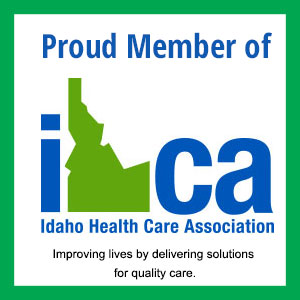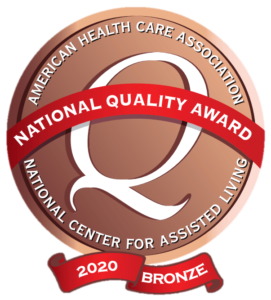
Many seniors require daily support from a caregiver. Oftentimes, their caregiver is a loved one such as a spouse, family member, or close friend. Caring for an elderly loved one can be both rewarding and challenging. Caregivers often face significant physical, emotional, and financial stress. Here are some tips and resources to help caregivers find the support they need.
- Build a Support Network
Seek assistance from friends, family, and local community groups. Join caregiver support groups to connect with others who understand your situation and can provide valuable advice and emotional support. Many senior living communities have experts that provide resources for caregivers and can lend a helping hand.
- Take Care of Yourself
It’s crucial to prioritize your own well-being. Taking care of yourself is crucial for maintaining your overall wellness and ensuring you can effectively care for others. Prioritizing self-care enhances your overall quality of life. Engaging in activities that bring you joy, fulfillment, and relaxation can lead to a more satisfying and meaningful life, both as a caregiver and in your personal endeavors. Maintain a healthy diet, exercise regularly, and try to get enough sleep. Make time for activities you enjoy and consider seeking therapy or counseling if you’re feeling overwhelmed. Remember, self-care is not selfish; it’s a necessary practice for maintaining your own well-being and providing the best possible care for others. By taking care of yourself, you can cultivate the energy, patience, and resilience needed to handle the demands of caregiving effectively.
- Learn About Your Senior’s Condition
Educate yourself about the specific health challenges your loved one is facing. Learning about a loved one’s health condition is essential for understanding their needs, providing appropriate support, and making informed decisions. Some effective ways to gather information about their health condition are:
- Consult healthcare professionals
- Research medical literature
- Join support groups
- Search online resources
- Attend educational workshops and seminars
- Speak with other caregivers
- Ask questions
- Take Breaks
Arrange for regular breaks from caregiving to avoid burnout. Look for local adult day care or respite care providers that can provide temporary relief, allowing you to recharge and attend to your personal needs. Adult day care is a service designed to provide daytime care and companionship for adults who need assistance or supervision. Adult day care providers offer various activities and services to promote social interaction, mental stimulation, and overall well-being. Respite services provide short-term care and support for seniors, typically overnight and oftentimes in a residential setting. Respite services offer their regular caregivers a break from their caregiving duties. Respite care services can be provided in various settings, including adult day care centers, assisted living facilities, and memory care homes.
- Access Community Resources
Accessing community resources for seniors can greatly enhance their well-being and quality of life. Some effective ways to find and utilize community resources for seniors are:
- Senior Centers: Contact local senior centers to inquire about available programs and services. These centers often provide social activities, wellness programs, educational workshops, and support groups tailored to the needs and interests of older adults.
- Community Outreach Programs: Reach out to community outreach programs run by local government agencies, nonprofit organizations, or religious institutions. These programs may offer various services, such as meal delivery, transportation assistance, and home maintenance support.
- Healthcare Providers: Consult healthcare providers, including primary care physicians and specialists, to inquire about community resources available for seniors. They may have information about local support groups, wellness programs, and healthcare services specifically designed for older adults.
- Online Directories and Databases: Explore online directories and databases that provide comprehensive listings of community resources for seniors. These resources often include information about senior living facilities, home care services, volunteer opportunities, and recreational activities in the area.
- Social Workers and Care Managers: Seek assistance from social workers, care managers, or case managers who specialize in senior care. They can provide valuable guidance and information about available community resources, as well as help navigate the process of accessing necessary services.
- Nonprofit Organizations: Reach out to nonprofit organizations that focus on senior care and advocacy. Many of these organizations offer a wide range of services, including meal delivery, caregiver support, and legal assistance, and can provide valuable resources and referrals for seniors in need.
Reap The Rewards
Caring for a loved one can be rewarding and challenging. As individuals learn how to utilize the resources and support systems that are available to them, they will find great ease from the physical, emotional, and financial stress that can occur, helping both their loved one and themselves thrive. Talk with a senior living expert today!
Let Us Help You Today!
We welcome the opportunity to speak with you about careers at The Cottages and the care that our residents receive at our Idaho locations. We are experts in assisted living, memory care, respite, adult day care, and have been serving seniors for over 20 years. Our small home-like senior living homes and specially-trained team members offer an atmosphere that promotes the well-being of your loved one.
If you have any questions, would like to tour one of the Idaho assisted living or memory care homes, or speak with one of our licensed administrators, please fill out the form below. Please mention which location(s) you’re interested in.



